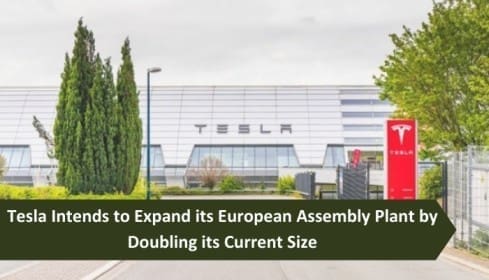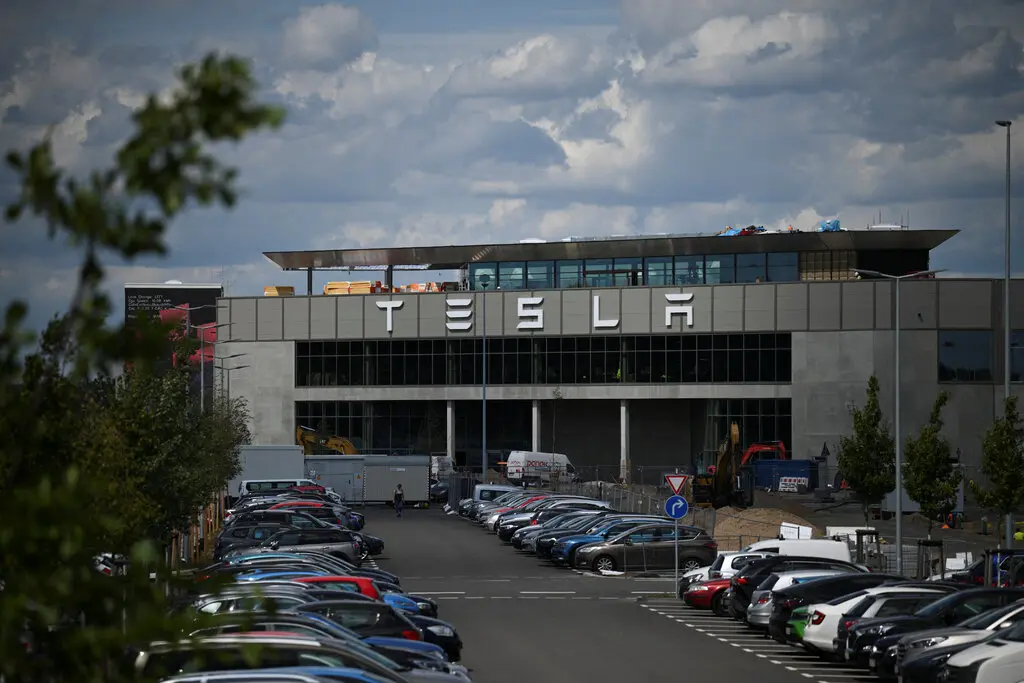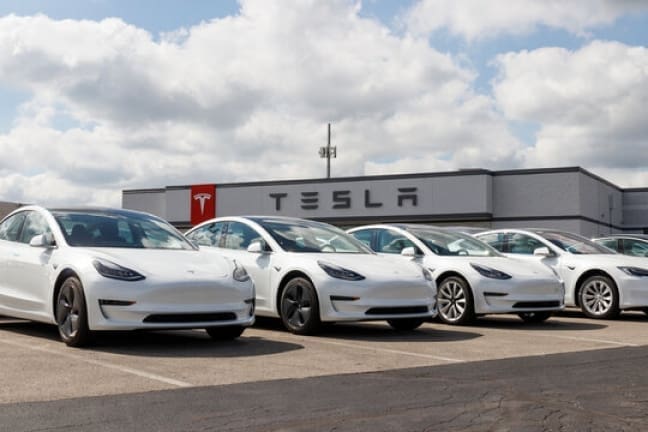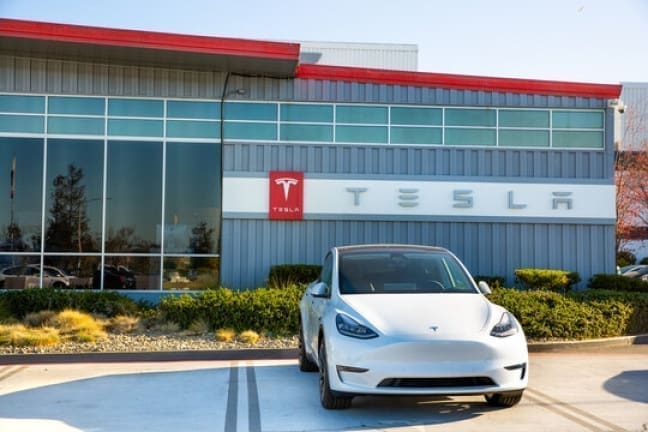The electric automaker intends to produce one million vehicles per year at its plant near Berlin, which would make it Europe’s largest auto factory.

Tesla aims to double the production capacity of its assembly plant outside Berlin to one million electric vehicles per year, making it the largest car plant in Europe at a time when German automakers are struggling to keep up with the shift to electric vehicles.
Since beginning production in Grünheide sixteen months ago, Tesla has significantly altered the German automobile industry. In the first half of this year, it surpassed Volkswagen in electric vehicle sales for the first time.
If the expansion, which was detailed in thousands of pages made public on Wednesday, is approved by local officials, the plant’s output will surpass that of Volkswagen’s landmark factory in Wolfsburg, which was constructed in the 1930s and has remained Europe’s largest, capable of producing 815,000 vehicles annually.

Volkswagen and other German manufacturers, including BMW and Mercedes-Benz, have struggled for years to produce electric vehicles that can compete with Tesla in terms of price and popularity. According to the European Automobile Manufacturers’ Association, new registrations of electric cars increased by more than 66 percent year-over-year in June, surpassing diesel cars for the first time.
Since March 2022, Tesla’s German facility has produced approximately 5,000 Model Y SUVs per week, which is roughly half of its current capacity, which is still increasing. The company stated that it would like to increase the plant’s capacity to produce additional models, but did not specify which ones. According to expansion documents, the company also intends to double its production of battery cells to a storage capacity of 100 gigawatt hours per year.
The company told locals at a town hall-style event near the facility on Tuesday that the number of workers would increase to 22,500 from the current 10,000. The preponderance of the jobs posted on the company’s website are in manufacturing, indicating that there are still openings in the current plant.
Dirk Schulze, the regional head of the labour union IG Metall, which has 2,3 million members nationwide, applauded the announcement of more employment in the economically depressed region. However, he advocated for improved working conditions for employees.
“D

Espite high levels of sick leave, significant staff reductions are occurring,” Mr. Schulze stated. However, production goals are not being lowered, so the burden on the remaining employees is increasing.
IG Metall is dissatisfied with its inability to recruit sufficient workers to generate a collective bargaining agreement for the plant’s employees. Elon Musk, the CEO of Tesla, has been forthright about his opposition to unions.
Residents and organisations have one month to review the plans and submit any concerns to the appropriate authorities. In October, a public hearing is scheduled to occur.

Since the plant was first proposed in 2019, Tesla has encountered opposition from locals who are concerned that the existing factory will deplete groundwater. The expansion plans include the construction of a water treatment facility that would enable the factory to recycle water rather than increase its resource consumption.

